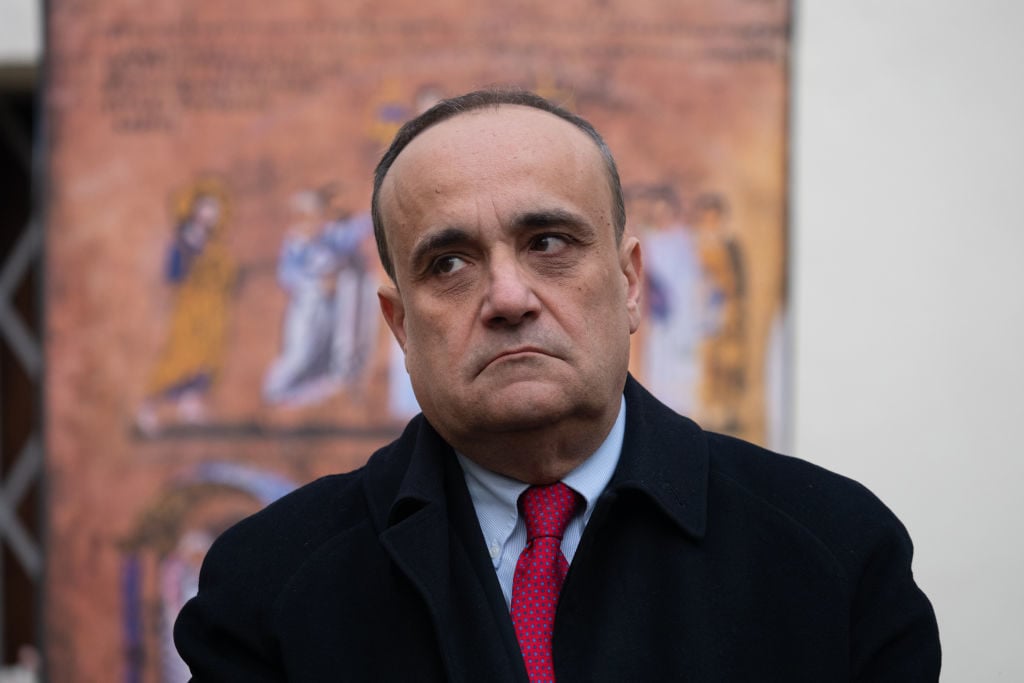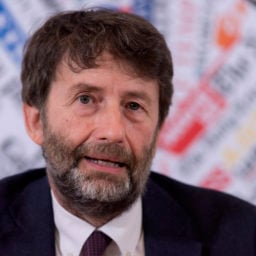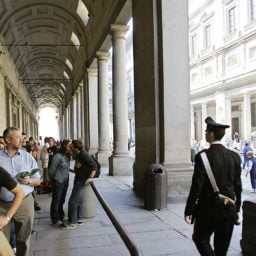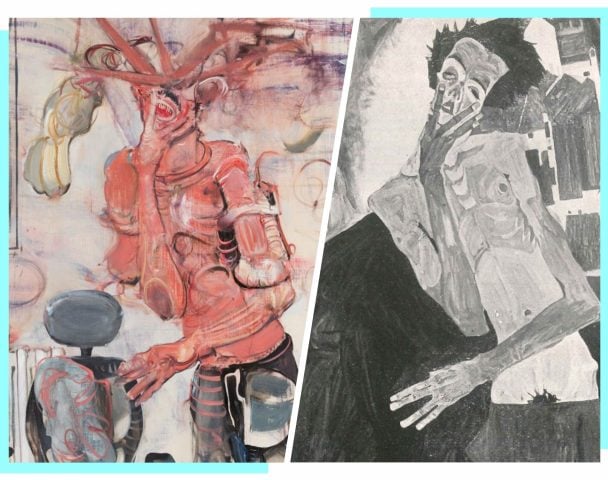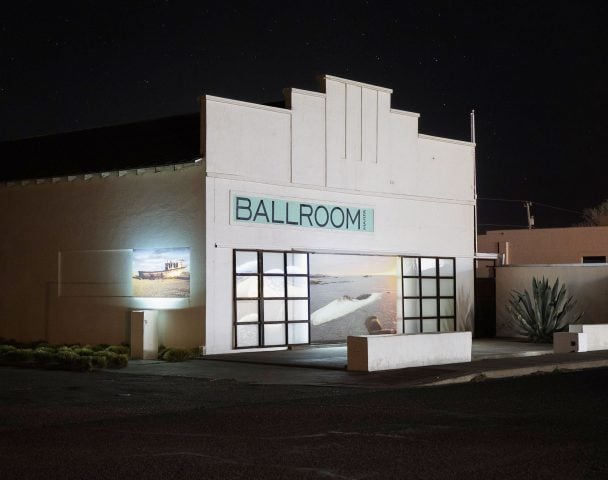A brief period of relative autonomy enjoyed by many of Italy’s leading state museums appears to be over. Museum boards are being abolished, and the contracts of foreign-born directors seem unlikely to be renewed as Italy’s government rolls back many of the game-changing reforms introduced four years ago.
A new decree signed by culture minister Alberto Bonisoli, which came into effect on August 22, signals an end to a bold experiment that began in 2015 when, under the government of Matteo Renzi, foreign candidates were encouraged to apply to direct a number of leading museums. Seven international directors were appointed to helm some of Italy’s top institutions, including the German expert in Renaissance and Baroque sculpture, Eike Schmidt, who has helped modernize the Uffizi Galleries in Florence. Among other feats, Schmidt introduced timed entrances to the Uffizi, cutting down the notoriously endless lines outside the galleries. For the first time museums could manage their own budgets, and their directors could rehang galleries, arrange international loans, and raise private sponsorship as they saw fit.
Now, the culture ministry in Rome is taking back control. While many fear a return of the dead hand of bureaucracy, and the increased politicization of the country’s cultural heritage amid a rise of nationalism, the ministry insists the changes will “rationalize” and “simplify” museum management. A spokesman for the Italian ministry of culture says that museum boards will be dissolved after October 1 because they were “considered useless.” In their place there will be “scientific committees,” to which the director will be allowed to appoint one member, with another being selected by local authorities.
An International Exodus
Many of Italy’s foreign-born museum directors have seen the writing on the wall and found new positions abroad. Eike Schmidt announced in 2017 that he would be leaving Florence for the Kunsthistorisches Museum in Vienna at the end of his term. The Austria-born Peter Aufreiter, who heads up the National Gallery of Marche, will move on to lead the Technical Museum in Vienna, and his fellow countryman Peter Assmann announced last November that he will be leaving Mantua’s Palazzo Ducale to head up the Austrian National Museum.
Although the new rules do not prevent international museum directors from applying for the vacant roles, Bonisoli stated in January that he thinks there is enough talent at home in Italy to fill the country’s top museum jobs. Speaking to artnet News, the culture spokesman rowed back on Bonisoli’s nationalist statement, saying that the minister “never said that he prefers Italian directors than international ones,” but that “the point is that they must be as highly trained as possible.”
Peter Assman tells artnet News that the new changes effectively reduce museums’ autonomy, despite what the ministry claims. Shifting power back to Rome “means immobility,” he says. “The museums will have their hands tied,” he adds.
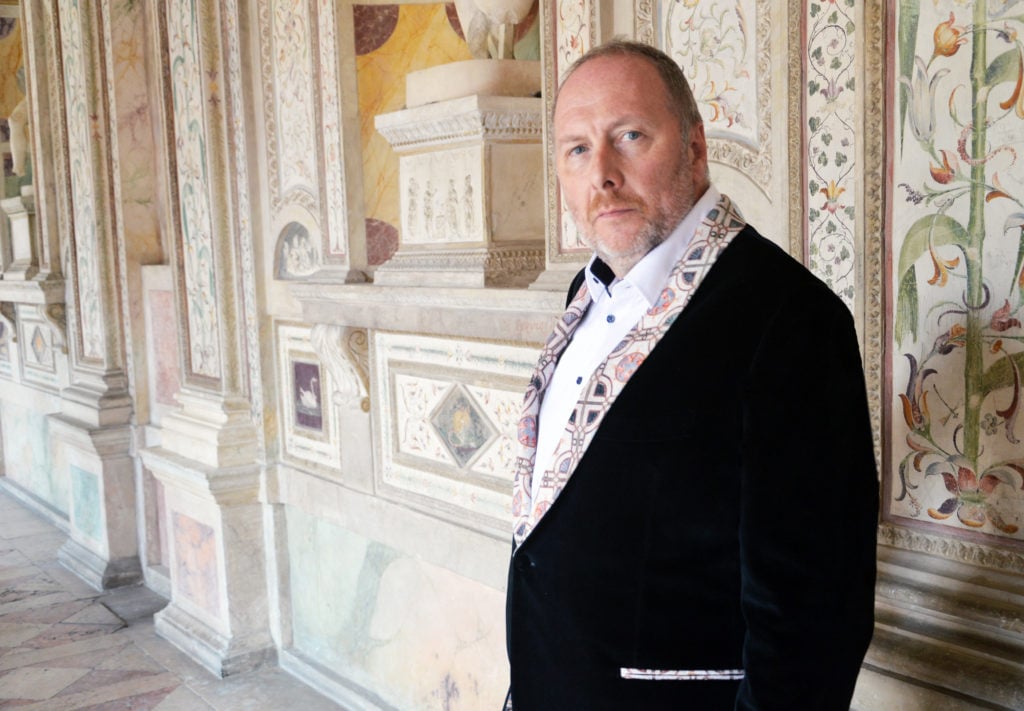
The director of Mantua’s Palazzo Ducale, Peter Assman.
Assman says that he was available to stay at the Palazzo Ducale, and repeatedly asked for meetings with the ministry to discuss the matter, but after receiving only silence he took up the post in his native Austria. “The line, before the current government crisis, was largely dictated by the League: ‘Italians first,’” Assman says, referring to the far-right party led by Matteo Salvini. “All right, I said to myself, we are no longer welcome.”
Assman says: “We will see if now something changes,” as a new coalition government is formed, thwarting Salvini’s bid for power. The Democratic Party leader Nicola Zingaretti promises a new government will mean a change of direction, away from nationalist politics. It remains to be seen how this will affect Italy’s cultural institutions.
A Step Backwards
For now, things are not looking good for the remaining international museum directors in Italy. Cecilie Hollberg, the German director of the Galleria Dell’Accademia in Florence, which is home to Michelangelo’s David, was forced out of her position shortly after the reforms were implemented. Hollberg’s contract was suddenly and unexpectedly terminated before it was due to expire in November, just as the new reforms meant the management of the art museum was merged with the Uffizi Galleries.
Hollberg tells artnet News that the reforms are an “anachronistic step backwards,” and will mean that “museum directors will become administrators.” She says that state museums were successfully modernizing thanks to their autonomy. “We changed things for the better, even if we did not have a lot of staff.” Under her leadership, she says the Galleria Dell’Accademia increased its attendance by 22 percent in the past three years, with revenue growing 14.5 percent each year. “This will destroy what we built in the last four years,” Hollberg fears. “Museums will lose their identity and turn back into isolation.”
Hollberg says that no one explained the early termination of her contract, although she guesses that there are “important political-financial interests” at play. Indeed, critics of the reforms think that they are setting up a path for the government to use Italy’s rich cultural heritage as a political football.
Earlier this year, Italy was caught up in a political tug-of-war with France over previously agreed upon loans of works by Leonardo da Vinci to the Louvre for an exhibition this fall marking 500 years since the death of the Renaissance master. The government spokesman confirms that international loans will be supervised by the ministry, “to better coordinate international relationships between Italy and foreign countries.”
The new changes also see a merger of a number of smaller museums with larger institutions. Along with the Galleria Dell’Accademia, the San Marco Museum in Florence will now fall under the directorship of the Uffizi Galleries, for example. The ministry defends this as a way of distributing financial resources more evenly across the state museum system. It promised to redistribute an extra €10 million ($11 million) by raising the culture ministry’s share of ticket revenue from 20 percent to 25 percent.
It is as yet unclear how the German-born Gabriel Zuchtriegel, who directs the Paestrum Archaeology Park, the British-Canadian museum director James Bradburne, who heads Milan’s Pinacoteca di Brera, and the French art historian Sylvain Bellenger, who manages the Capodimonte Museum in Naples, will be affected by the reforms. Artnet News reached out for comment but did not hear back by press time.
For its part, the Italian ministry insists that museums will remain autonomous under the new rules, explaining in a press release that directors will maintain control over institutions’ budgets. According to the ministry, they will still be allowed to raise funds, complete existing contracts, and establish new ones.
